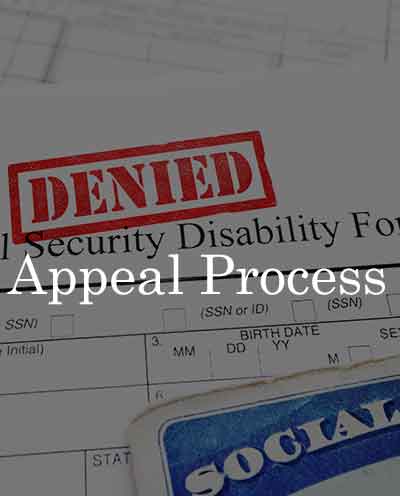How Do I Know If I Get SSI or SSDI?
If you’re unable to work due to a disability, you may qualify for Social Security Disability Insurance (SSDI) or Supplemental Security Income (SSI). Understanding the difference between these programs helps you determine which benefits you may be eligible for and what steps to take next.
The Difference Between SSI vs SSDI: Which Program Is Right for You?
The main difference between SSDI and SSI comes down to your work history and financial situation. SSDI requires work credits from previous employment, while SSI is based on financial need regardless of work history.
SSDI (Social Security Disability Insurance):
- Requires sufficient work history and Social Security credits
- Based on your past earnings, not current income
- Generally provides higher monthly payments
SSI (Supplemental Security Income):
- No work history required
- Based on limited income and resources
- Lower monthly payments with strict asset limits
Contact A Lawyer Today
"*" indicates required fields
Is It Harder to Get SSI or SSDI?
Both programs use the same medical criteria to determine disability. However, SSDI and SSI have different non-medical requirements that can affect approval rates.
SSDI Requirements:
- Must have earned enough Social Security credits (typically 40 credits total, with 20 earned in the last 10 years) However, younger workers may be eligible with fewer credits.
- Must be under full retirement age
- No income or asset limits
SSI Requirements:
- Must have limited income (under $967 per month for individuals in 2025)
- Must have limited resources (under $2,000 for individuals)
- Must be disabled, blind, or over age 65
For most people with a substantial work history, SSDI is often the preferred option because it typically provides higher monthly benefits and doesn’t restrict your assets or spouse’s income.
How Much Do SSI and SSDI Pay?
SSDI Payment Amounts: SSDI payments are based on your lifetime earnings covered by Social Security. The average monthly SSDI payment varies significantly based on your work history. Higher earners receive higher benefits, while the program has both minimum and maximum payment limits.
SSI Payment Amounts for 2025:
- $967 for an eligible individual
- $1,450 for an eligible couple
- Actual payments may be reduced by other income
| If you develop a disability at... | Then you generally need ___ years of work. |
|---|---|
| Before age 28 | 1.5 years (6 credits) |
| Age 30 | 2 years (8 credits) |
| Age 34 | 3 years (12 credits) |
| Age 38 | 4 years (16 credits) |
| Age 42 | 5 years (20 credits) |
| Age 44 | 5.5 years (22 credits) |
| Age 46 | 6 years (24 credits) |
| Age 48 | 6.5 years (26 credits) |
| Age 50 | 7 years (28 credits) |
| Age 52 | 7.5 years (30 credits) |
| Age 54 | 8 years (32 credits) |
| Age 56 | 8.5 years (34 credits) |
| Age 58 | 9 years (36 credits) |
Can I receive both SSI and SSDI?
Yes, some individuals may qualify for both Supplemental Security Income and Social Security Disability Insurance, known as “concurrent benefits.” If you are eligible for SSI and eligible for SSDI, there is a chance you can receive concurrent benefits. Concurrent benefits occur when SSDI payments are lower than the maximum SSI benefit.
Which Should You Apply For?
Apply for SSDI if:
- You have sufficient work credits
- You’ve worked recently (within the last 5-10 years depending on your age)
- You want higher potential monthly payments
- You don’t want asset restrictions
Apply for SSI if:
- You don’t have enough work credits for SSDI
- You have very limited income and assets
- You need immediate Medicaid coverage
Apply for both if:
- You have some work credits but expect a low SSDI payment
- You meet both programs’ requirements
The Application Process
 You can apply for both programs through the same application process. For SSI, Social Security representatives will complete the application forms during an interview based on information you provide. For SSDI, you can complete the application online yourself, or Social Security representatives can assist with completing the forms during an interview. The Social Security Administration will determine which benefits you’re eligible for.
You can apply for both programs through the same application process. For SSI, Social Security representatives will complete the application forms during an interview based on information you provide. For SSDI, you can complete the application online yourself, or Social Security representatives can assist with completing the forms during an interview. The Social Security Administration will determine which benefits you’re eligible for.
Important Information:
- Apply as soon as you become unable to work
- SSDI has a five-month waiting period before benefits begin
- SSI benefits can start the month after you apply
Why You Might Need Legal Help
The disability application process is complex, and many initial applications are denied. Consider consulting with a Social Security Disability lawyer if:
- Your initial application is denied
- You need help with the appeals process
- You’re unsure which program to apply for
- You have a complex work history or medical conditions
An experienced attorney can help ensure your application includes all necessary information and represents your case effectively during reconsideration or at a hearing.
Next Steps
Understanding the differences between SSDI and SSI helps you make informed decisions about your disability benefits. If you’ve worked and paid Social Security taxes, SSDI is often the better option due to higher payments and fewer restrictions. However, if you don’t qualify for SSDI or expect a very low payment, SSI may provide necessary financial support.
The application process can be lengthy and complex. Getting professional guidance early in the process can help improve your chances of approval and ensure you receive all the benefits you’re entitled to.
Need help determining your eligibility or navigating the application process? Contact our office to discuss your specific situation with an experienced Social Security Disability attorney.
Need help submitting a disability claim?
Do you have a social security disability hearing soon?
Were you denied social security benefits?
Do you have a severe medical condition?
Think you qualify for disability?
Have more questions about Social Security Disability?
This is New York Attorney Advertising. This website is designed for general information only. The information presented in this site should not be construed to be formal legal advice nor the formation of a lawyer/client relationship. We may rely on co-counsel for some or all of the cases. Prior results do not guarantee a similar outcome.








